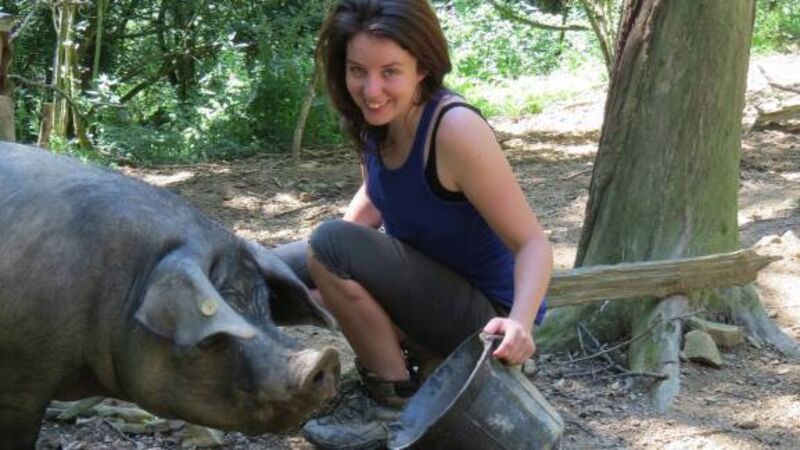As happy as a piglet in merde de cochon

Which is lots of fun for the black Gascon pigs who are squelching about in their element, and not so much fun for moi — their waitress for the evening.
No, I’m not having much fun at all and I couldn’t be any further from my element. I’m straddling a slippery mountain bank just above the pigs’ mud-caked snouts, trying my level best to hold onto my balance, two full-to-overflowing buckets of pig-feed, and a fast-disappearing sense of oneness with nature. It’s July 2011, I’m four days deep into my French farming adventure, and for about the fifth time that hour wondering how on earth I was going to get myself on the next flight out of there.











